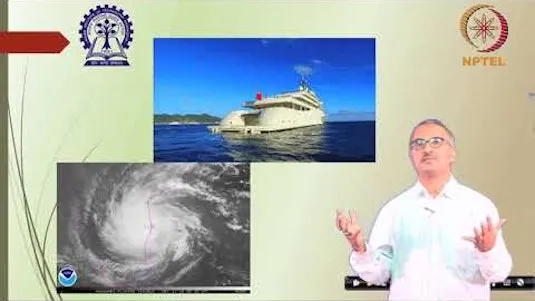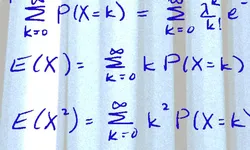
Mass Momentum And Energy Balances In Engineering Analysis 
This course provides an overview of mass, momentum, and energy balances in engineering analysis. It covers the conservation laws and how to apply them in both macroscopic and microscopic approaches. It is intended for students with a 10+2 Science and Mathematics background and is suitable for those in Aerospace, Mechanical, Chemical, Ocean, Cryogenic, Marine, Naval, Energy, Petroleum, Environmental, and Geological Engineering. The course provides skill training and online learning to help students understand the fundamentals of engineering analysis. ▼
ADVERTISEMENT
Course Feature
![]() Cost:
Cost:
Free
![]() Provider:
Provider:
Swayam
![]() Certificate:
Certificate:
Paid Certification
![]() Language:
Language:
English
![]() Start Date:
Start Date:
22nd Jan, 2023
Course Overview
❗The content presented here is sourced directly from Swayam platform. For comprehensive course details, including enrollment information, simply click on the 'Go to class' link on our website.
Updated in [May 25th, 2023]
This course, Mass Momentum and Energy Balances in Engineering Analysis, is designed to provide an overview of the conservation laws and their application to transport phenomena and thermodynamics. Through this course, students will gain an understanding of how to make mass, momentum, and energy balances.
This course is intended for students in Aerospace, Mechanical, Chemical, Ocean, Cryogenic, Marine, Naval, Energy, Petroleum, Environmental, and Geological Engineering who have completed 10+2 Science and Mathematics. It is also beneficial for those in process and allied industries.
[Applications]
After taking this course, students can apply the knowledge they have gained to analyze engineering problems. They can use the conservation laws to make mass, momentum, and energy balances to solve engineering problems. Additionally, they can use the macroscopic and microscopic approaches to analyze engineering problems. This course can be applied to various industries, such as aerospace, mechanical, chemical, ocean, cryogenic, marine, naval, energy, petroleum, environmental, and geological engineering.
[Career Paths]
1. Process Engineer: Process engineers are responsible for designing, developing, and managing the processes used to create products. They must ensure that the processes are efficient, cost-effective, and safe. With the knowledge gained from this course, process engineers can use mass, momentum, and energy balances to optimize their processes and ensure that they are meeting the desired goals.
2. Energy Engineer: Energy engineers are responsible for designing, developing, and managing energy systems. They must ensure that the systems are efficient, cost-effective, and safe. With the knowledge gained from this course, energy engineers can use mass, momentum, and energy balances to optimize their systems and ensure that they are meeting the desired goals.
3. Environmental Engineer: Environmental engineers are responsible for designing, developing, and managing environmental systems. They must ensure that the systems are efficient, cost-effective, and safe. With the knowledge gained from this course, environmental engineers can use mass, momentum, and energy balances to optimize their systems and ensure that they are meeting the desired goals.
4. Chemical Engineer: Chemical engineers are responsible for designing, developing, and managing chemical processes. They must ensure that the processes are efficient, cost-effective, and safe. With the knowledge gained from this course, chemical engineers can use mass, momentum, and energy balances to optimize their processes and ensure that they are meeting the desired goals.
[Education Paths]
1. Bachelor of Science in Mechanical Engineering: This degree program focuses on the design, development, and operation of mechanical systems. It covers topics such as thermodynamics, fluid mechanics, and materials science. Students will learn how to apply the principles of mass, momentum, and energy balances to engineering analysis. This degree is becoming increasingly important as the demand for more efficient and sustainable energy sources grows.
2. Bachelor of Science in Chemical Engineering: This degree program focuses on the design, development, and operation of chemical processes. It covers topics such as thermodynamics, reaction kinetics, and process control. Students will learn how to apply the principles of mass, momentum, and energy balances to engineering analysis. This degree is becoming increasingly important as the demand for more efficient and sustainable energy sources grows.
3. Master of Science in Energy Engineering: This degree program focuses on the design, development, and operation of energy systems. It covers topics such as thermodynamics, power systems, and energy storage. Students will learn how to apply the principles of mass, momentum, and energy balances to engineering analysis. This degree is becoming increasingly important as the demand for more efficient and sustainable energy sources grows.
4. Doctor of Philosophy in Renewable Energy Engineering: This degree program focuses on the design, development, and operation of renewable energy systems. It covers topics such as thermodynamics, renewable energy sources, and energy storage. Students will learn how to apply the principles of mass, momentum, and energy balances to engineering analysis. This degree is becoming increasingly important as the demand for more efficient and sustainable energy sources grows.
Course Provider

Provider Swayam's Stats at AZClass
Discussion and Reviews
0.0 (Based on 0 reviews)
Explore Similar Online Courses

Statistical Inference for Estimation in Data Science

Premiere Pro CC for Beginners: Video Editing in Premiere

Python for Informatics: Exploring Information

Social Network Analysis

Introduction to Systematic Review and Meta-Analysis

The Analytics Edge

DCO042 - Python For Informatics

Causal Diagrams: Draw Your Assumptions Before Your Conclusions

Whole genome sequencing of bacterial genomes - tools and applications

Matrices for physics

AP Physics C - Electricity & Magnetism: Exam Prep


Start your review of Mass Momentum And Energy Balances In Engineering Analysis